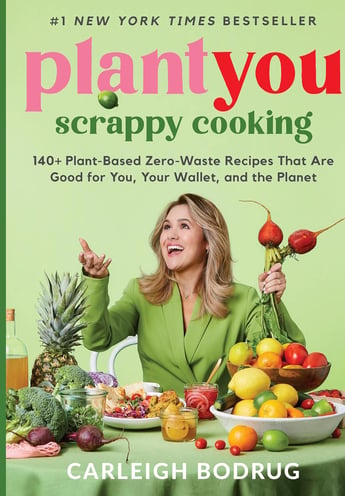The Power of Plant-Based Eating: A Simple Guide to Sustainable Living
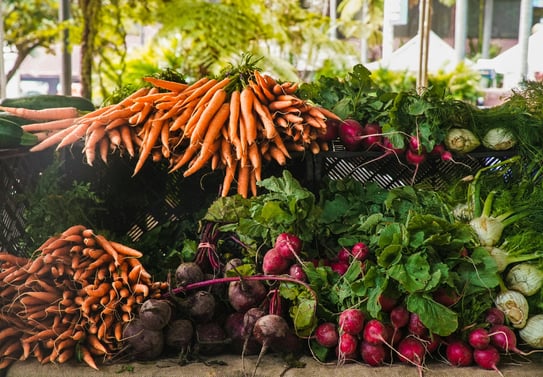

What Does It Mean to Eat Plant-Based?
Imagine sitting down to a meal that nourishes not just your body, but also the planet. That’s the essence of a plant-based diet. Whether you’re already a die-hard vegan, someone curious about reducing meat, or just someone looking for healthier options, plant-based eating offers something for everyone.
It’s not about labeling yourself—it’s about making conscious food choices that align with your values, improve your health, and protect our planet. This isn’t a passing trend; it’s a lifestyle change that empowers you to live more intentionally.
Image source: pexels


Why People Are Turning to Plant-Based Diets
Let’s talk about why this shift is happening. It’s more than tofu and kale—people are adopting plant-based diets because of real, pressing concerns:
Health Benefits
Reduces the risk of heart disease, diabetes, and obesity.
Improves digestion and gut health (hello, fiber!).
Boosts energy levels with nutrient-dense foods.
Environmental Impact
The meat industry is one of the biggest contributors to greenhouse gas emissions.
A plant-based diet uses fewer resources like water and land.
It’s one of the simplest ways to reduce your carbon footprint.
Animal Welfare
For those who care about animal rights, reducing meat consumption is an ethical choice.
Affordability
Contrary to myths, plant-based eating can actually save you money. Staples like beans, lentils, rice, and seasonal vegetables are budget-friendly and versatile.
Image source: pexels


How to Start Your Plant-Based Journey (Without Feeling Overwhelmed)
Let’s get real—transitioning to a plant-based lifestyle doesn’t mean giving up your favorite foods overnight. You don’t have to be perfect, and even small changes can make a huge impact. Here are some easy, actionable tips to get started:
1. Focus on “Crowding In” Instead of Cutting Out
Rather than obsessing over what you can’t eat, focus on adding more plant-based foods to your plate. Think colorful salads, hearty grain bowls, and delicious fruit smoothies. Over time, plant-based options will naturally take center stage in your meals.
2. Start with One Plant-Based Meal a Day
Begin small—maybe it’s oatmeal with almond milk for breakfast, or a veggie stir-fry for dinner. Once you get comfortable, try adding more plant-based meals to your routine.
3. Experiment with Plant-Based Proteins
Worried about protein? Don’t be. Foods like lentils, chickpeas, black beans, tofu, tempeh, seitan, quinoa, and even vegetables like spinach and broccoli are rich in protein. Get adventurous and try recipes that make these ingredients shine.
4. Make Plant-Based Swaps
Love burgers? Try a black bean burger. Addicted to cream in your coffee? Switch to oat milk. The key is finding alternatives that feel satisfying to you. Over time, these swaps become second nature.
5. Explore Seasonal, Local Ingredients
Eating seasonally not only tastes better but is also more sustainable. Visit your local farmer’s market to find fresh produce and support small farmers in your community.
6. Arm Yourself with Quick, Easy Recipes
We’re all busy, but eating plant-based doesn’t have to mean hours in the kitchen. Start with simple dishes like vegetable stir-fries, pasta primavera, or hearty soups.
Image source: pexels
Let Us break down the Plant-based diet with its health benefits, and myths revolving around it in a prolonged manner, and How the Transition to a Plant-Based Diet (Step-by-Step) is possible...
In-Depth Benefits of a Plant-Based Diet
1. Boosts Heart Health
Heart disease is the leading cause of death worldwide, and diet plays a huge role in prevention. Plant-based diets are naturally cholesterol-free and rich in fiber, which helps regulate blood pressure and reduces bad cholesterol (LDL).
Foods to include: Oats, flaxseeds, walnuts, leafy greens, and berries.
Scientific evidence: Studies from organizations like the American Heart Association link plant-based eating with a 31% lower risk of cardiovascular disease.
2. Aids in Weight Management
Plant-based foods are nutrient-dense but low in calories, making it easier to maintain a healthy weight. The high fiber content also keeps you full longer, reducing unhealthy snacking.
Try this: Replace refined carbs with whole grains like quinoa or brown rice for sustained energy.
3. Lowers Risk of Chronic Diseases
Consuming more plants reduces inflammation, stabilizes blood sugar, and lowers the risk of type 2 diabetes, certain cancers, and even cognitive decline.
Focus on: Anti-inflammatory foods like turmeric, ginger, and leafy greens.
4. Enhances Digestive Health
Fiber is your gut’s best friend. Plant-based diets, rich in fiber, feed healthy gut bacteria, improving digestion and nutrient absorption while preventing issues like constipation and bloating.
5. Supports Longevity
The longest-living populations (e.g., in Blue Zones like Okinawa, Japan, and Sardinia, Italy) emphasize plant-based diets. Their diets are heavily plant-centric, proving that plants are foundational for a long, healthy life.
6. Benefits the Environment
Switching to a plant-based diet isn’t just about personal health—it’s a powerful way to combat climate change. Growing plants uses significantly less water and land compared to raising livestock, reducing greenhouse gas emissions and deforestation.
Debunking Myths About Plant-Based Diets
Myth 1: You Can’t Get Enough Protein.
This is a common misconception. In reality, plants like lentils, chickpeas, tofu, tempeh, quinoa, nuts, seeds, and even vegetables like spinach and broccoli are packed with protein.
Tip: Combine foods like rice and beans or peanut butter and whole-grain bread to create complete proteins.
Myth 2: It’s Expensive.
While some plant-based products can be pricey, staples like beans, rice, oats, potatoes, and fresh vegetables are among the most affordable and nutritious foods you can buy.
Budget tip: Buy seasonal produce and dried legumes in bulk.
Myth 3: It’s Hard to Follow or Too Restrictive.
Far from it! A plant-based diet opens the door to diverse cuisines and flavors. Think Mediterranean hummus platters, spicy Indian lentil curries, or vibrant smoothie bowls.
Quick recipe idea: Try a chickpea and vegetable stir-fry with soy sauce and sesame oil for a simple, satisfying dinner.
How to Transition to a Plant-Based Diet (Step-by-Step)
1. Ease Into It
Start with one plant-based meal a day, like a hearty oatmeal breakfast or a veggie-packed salad for lunch. Gradually increase plant-based meals as you grow more comfortable.
2. Get Familiar with Plant-Based Staples
Stock your pantry with essentials like:
Whole grains (quinoa, brown rice, oats)
Legumes (lentils, black beans, chickpeas)
Nuts and seeds (almonds, chia seeds, sunflower seeds)
Nutritional yeast (for a cheesy flavor packed with B12)
3. Explore Meat and Dairy Alternatives
Experiment with tofu, tempeh, jackfruit, or even plant-based burgers. Replace dairy milk with almond, oat, or soy milk.
4. Plan and Prep Your Meals
Batch cooking and meal prepping can save time and reduce stress. Cook large batches of lentil soups, roasted veggies, and quinoa bowls to enjoy throughout the week.
5. Experiment with New Recipes
Dive into plant-based cookbooks, YouTube channels, or Instagram pages for inspiration. Make it fun and creative!
6. Stay Nutrient-Conscious
Pay attention to nutrients like B12, iron, omega-3s, and calcium. These are easy to source from fortified foods, supplements, or specific plant-based options like flaxseeds (omega-3) and fortified plant milk (calcium).
Practical Tips for Long-Term Success
Start with what you love. Transitioning is easier when you begin with plant-based versions of your favourite dishes—like a black bean burger or a creamy coconut curry.
Eat the rainbow. A colourful plate ensures you’re getting a variety of vitamins and minerals.
Connect with a community. Join online forums, social media groups, or local meetups for plant-based enthusiasts.
Be kind to yourself. It’s okay to slip up—what matters is progress, not perfection.

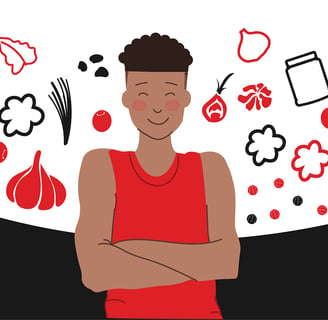
How to Make It Stick: Plant-Based Living for the Long Term
We all hit roadblocks, and that’s okay. The secret to sticking with a plant-based lifestyle is flexibility and forgiveness. It’s not about being 100% perfect—it’s about doing your best. If you slip up, don’t stress. Just get back on track with your next meal.
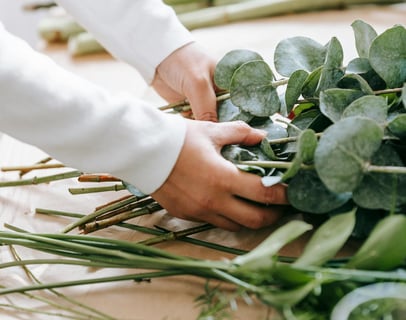

Image source: pexels
Essential Tools for Your Plant-Based Journey
1. Cookbooks
The first and foremost reason for having cookbook suggestions is that lots of great things might happen for you because of small cook reading, it simply compounds you get ahead of your neighbor in terms of cooking. Who knows you may get through a cooking business mentality.
“Plant You” by Carleigh Bodrug" – A beginner-friendly cookbook with simple, wholesome recipes. Instant #1 New York Times Bestseller. Save money, reduce food waste, and eat healthier than you ever have before with this highly anticipated cookbook from New York Times bestselling author and social media sensation, Carleigh Bodrug.
“The Plant-Based Athlete” by Matt Frazier – Perfect for active individuals, Even the slightest food adjustments can impact performance.
2. Look up for Meal plans.
3.See the resources available for learning plant-based diet through online platforms
4. Use Eco-friendly products to move with sustainability motive.
A Few Plant-Based Recipes to Get You Started
Here are a couple of easy and delicious recipes your readers can try today.
1. Easy Chickpea Salad Sandwich
Ingredients: Chickpeas, vegan mayo, Dijon mustard, celery, green onion, salt, and pepper.
Instructions: Mash the chickpeas, mix with the other ingredients, and serve on whole-grain bread. Add lettuce and tomato for extra crunch.
2. One-Pot Lentil Curry
Ingredients: Red lentils, coconut milk, diced tomatoes, curry powder, garlic, ginger, and spinach.
Instructions: Sauté garlic and ginger, add lentils, coconut milk, tomatoes, and curry powder. Simmer until cooked, then toss in spinach. Serve with rice or naan.
Closing Thoughts: Your Journey to a Healthier, More Sustainable You
Embracing a plant-based lifestyle is more than just a diet change—it’s a way to reconnect with yourself, your values, and the planet. Every small step you take matters, and together, we can create a more sustainable future.
Remember: It’s not about perfection, but progress. Try new foods, explore recipes, and enjoy the journey.
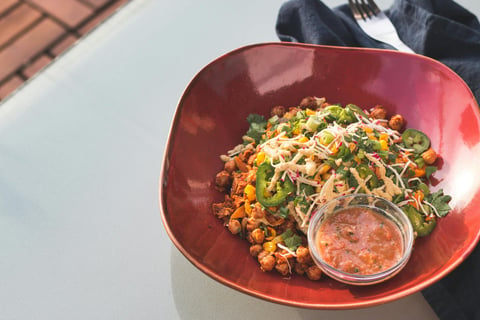

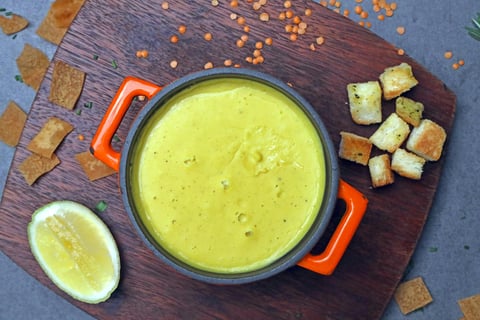

Image source: pexels
Image source: pexels
betterhumanguide Ltd © 2024
betterhumanguide empowers tomorrow's generation for a brighter future and hope for everyone.

